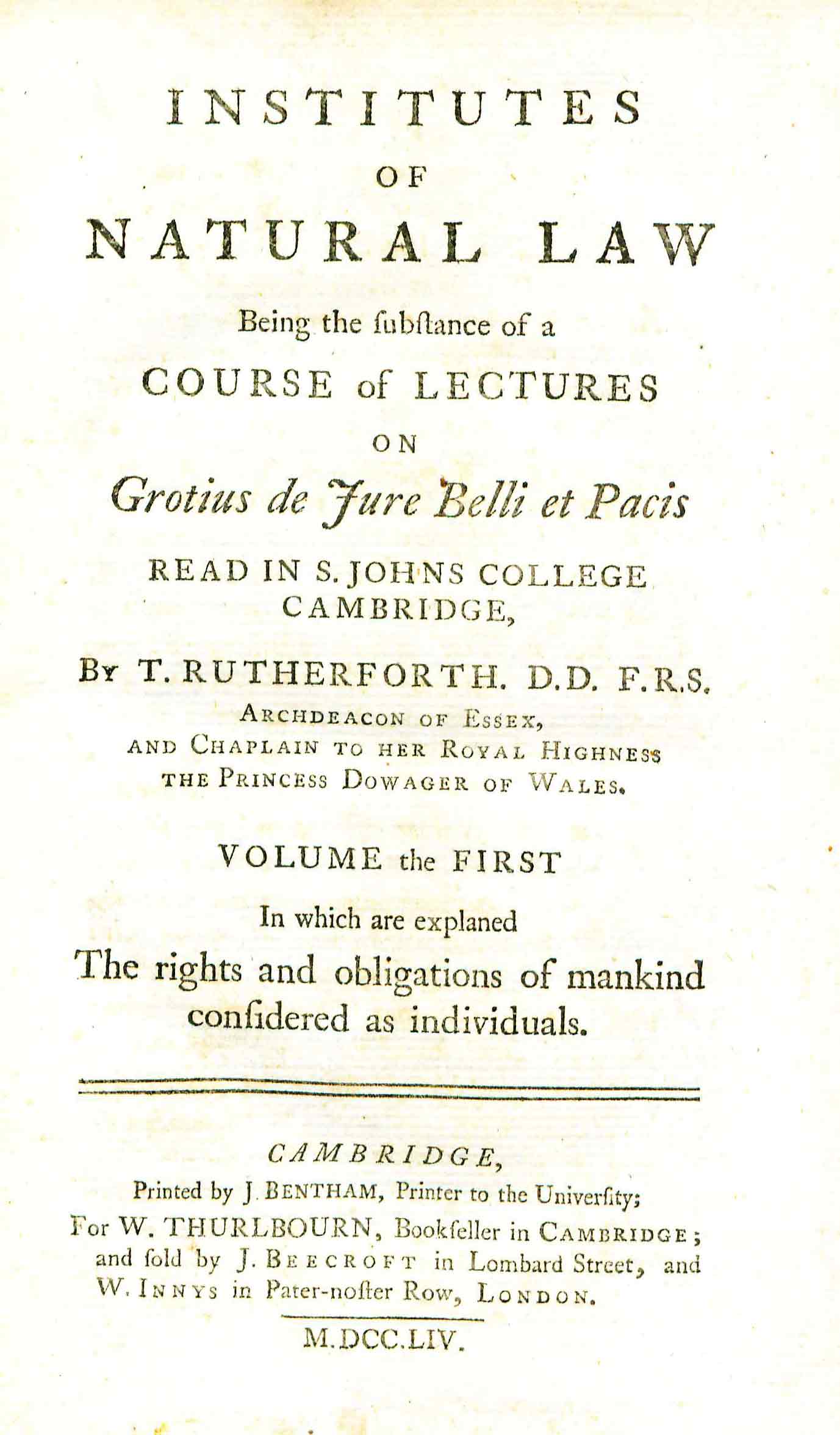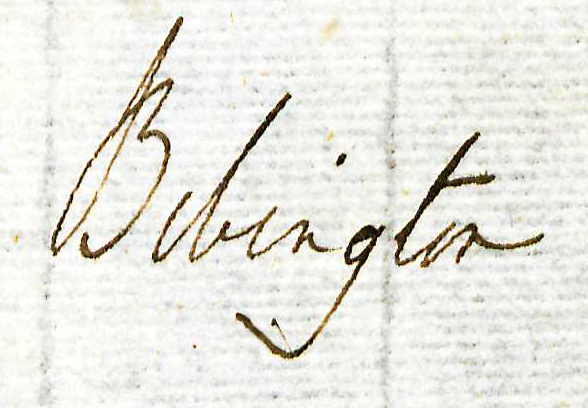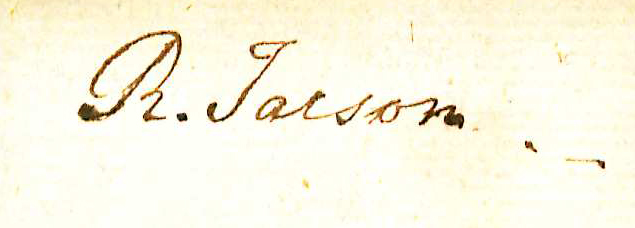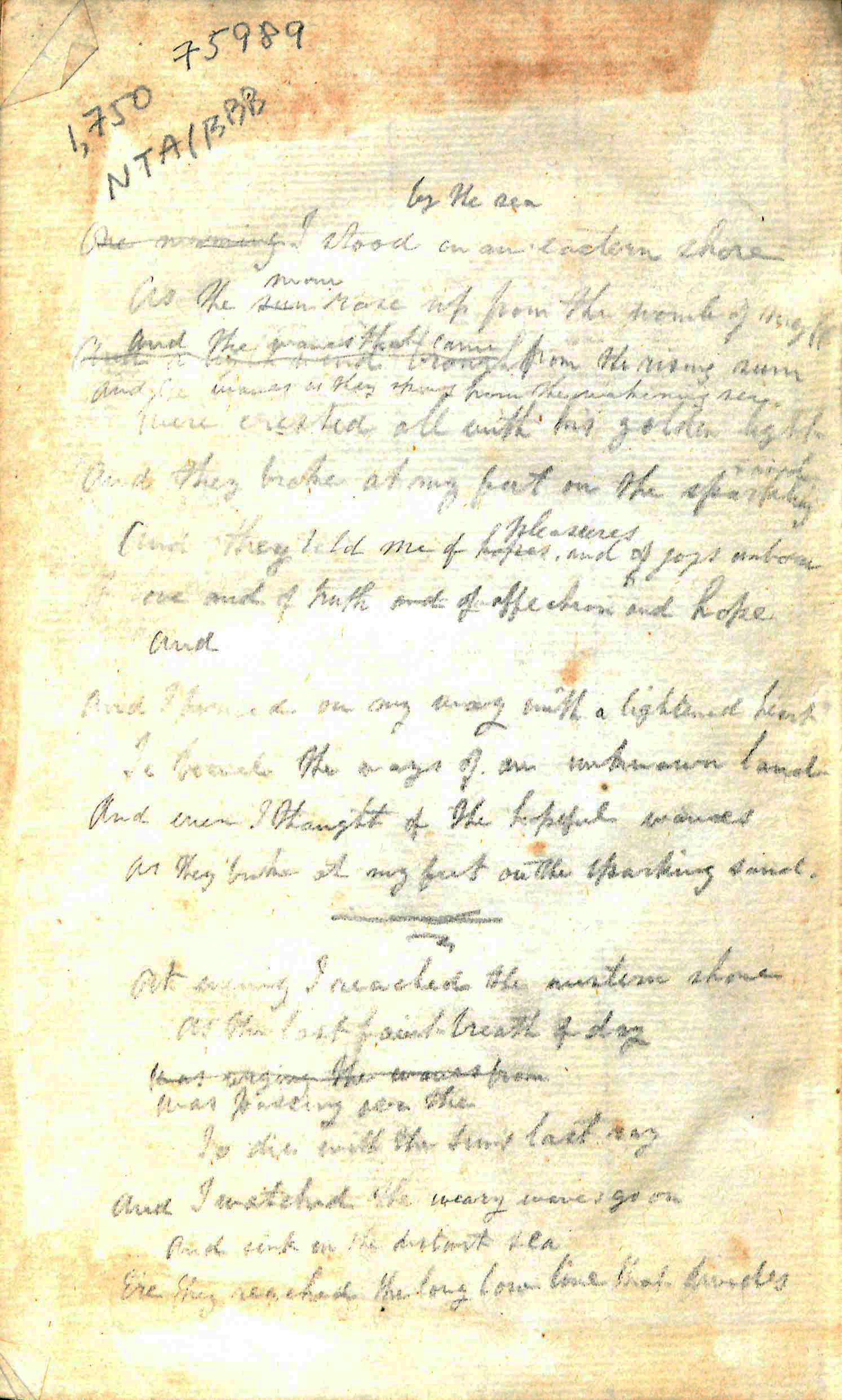Institutes of Natural Law: Being the Substance of a Course of Lectures on Grotius De Jure Belli et Pacis
by Thomas Rutherforth
| Institutes of Natural Law | |
|
Title page from Institutes of Natural Law, volume one, George Wythe Collection, Wolf Law Library, College of William & Mary. | |
| Author | Thomas Rutherforth |
| Published | Cambridge: Printed by J. Bentham, printer to the University, for W. Thurlbourn, bookseller in Cambridge |
| Date | 1754-1756 |
| Edition | Eighth |
| Volumes | 2 volume set |
| Desc. | 8vo (21 cm.) |
| Location | Shelf G-4 |
Rutherforth’s work brought him recognition and career advancement. He served as chaplain to Frederick, Prince of Wales, and later to the princess dowager for a time. His wife was Charlotte Elizabeth Abdy, whose father was Sir William Abdy, fourth baronet of Albyns.[7]
Evidence for Inclusion in Wythe's Library
Dean's Memo[8] includes the first (1754-1756) edition of Thomas Rutherforth's Institutes of Natural Law based on a reference in Bernard Mayo's biography of Henry Clay, Henry Clay: Spokesman of the New West.[9] Brown's Bibliography[10] suggests either the first edition published in Cambridge, or the third (1799) edition published in Philadelphia, based on a reference in Wythe's case report for Aylett v. Aylett: "See Rutherforth on Grotius b.1. c. VI. s. V."[11] Brown notes "In all probability Wythe may have owned the Philadelphia edition." Based on the evidence we cannot determine precisely which edition Wythe owned. The Wolf Law Library followed Dean's recommendation and purchased a copy of the first edition.
Description of the Wolf Law Library's copy
Bound in contemporary calf with red morocco title labels and black morocco volume labels to spines. Includes previous owner's signatures: "Babington" to front pastedown of volume one, "W. Weddington" to front fly leaves of both volumes, and "R. Jacson" to both front free endpapers. Volume one also has a manuscript poem, "By the sea," on the rear free endpaper verso and the rear pastedown. Purchased from Meyer Boswell Books, Inc.
Images of the library's copy of this book are available on Flickr. View the record for this book in William & Mary's online catalog.
See also
References
- ↑ William Holdsworth, A History of English Law (London: Methuen & Co., Sweet and Maxwell, 1938), 12:643.
- ↑ John Gascoigne, "Rutherforth, Thomas (1712–1771)" in Oxford Dictionary of National Biography (Oxford University Press, 2004- ), accessed October 21, 2013.
- ↑ Ibid.
- ↑ Ibid.
- ↑ Gary L. McDowell, "The Limits of Natural Law: Thomas Rutherforth and the American Legal Tradition," The American Journal of Jurisprudence 37 (1992): 58, accessed Oct. 21, 2013.
- ↑ Ibid, 59-60.
- ↑ Gascoigne, “Rutherforth, Thomas.”
- ↑ Memorandum from Barbara C. Dean, Colonial Williamsburg Found., to Mrs. Stiverson, Colonial Williamsburg Found. (June 16, 1975), 16 (on file at Wolf Law Library, College of William & Mary).
- ↑ Bernard Mayo, Henry Clay: Spokesman of the New West (Boston: Houghton Mifflin Company, 1937), 26.
- ↑ Bennie Brown, "The Library of George Wythe of Williamsburg and Richmond," (unpublished manuscript, May, 2012) Microsoft Word file. Earlier edition available at: https://digitalarchive.wm.edu/handle/10288/13433
- ↑ George Wythe, Decisions of Cases in Virginia by the High Court of Chancery ed. B. B. Minor, 2nd ed. (Richmond: J.W. Randolph, 1852), 225.
External Links
Read volume one of this book in Google Books.



